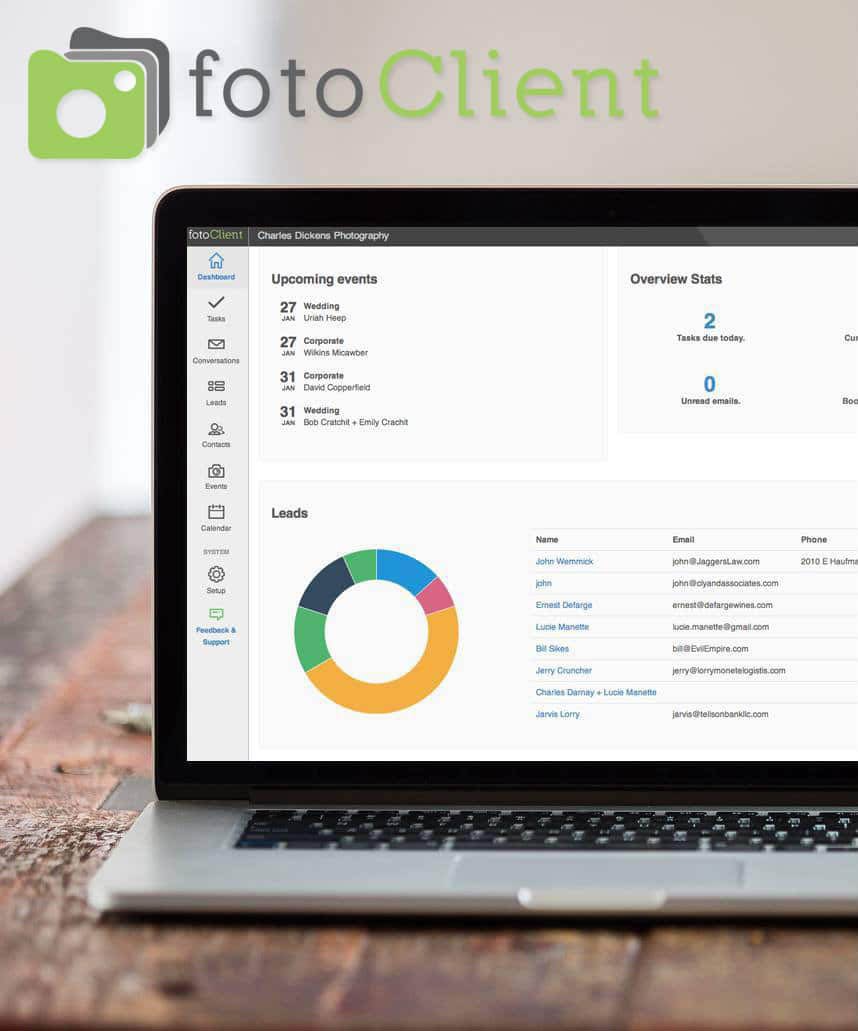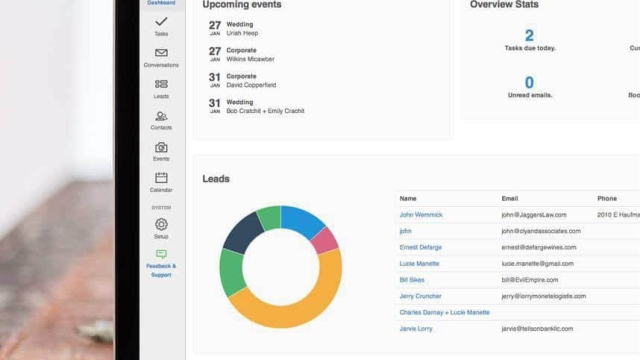In today’s fast-paced and competitive business landscape, effective management of operations is the key to success. This holds especially true for photography studios, where the seamless coordination of tasks, clients, and finances is essential. This is where Customer Relationship Management (CRM) and studio management systems come into play, empowering photographers to streamline their operations and unlock their full potential. By leveraging the power of CRM and studio management, photography businesses can enhance their efficiency, optimize client management, and ensure smooth invoicing processes, ultimately driving their success in the industry.
Photography is an artform that demands high levels of organization and attention to detail. From capturing stunning images to managing bookings and arranging shoots, photographers have their hands full with multiple tasks simultaneously. This can become overwhelming, time-consuming, and prone to errors if not managed effectively. Fortunately, CRM and studio management systems offer a comprehensive solution to tackle these challenges head-on.
A CRM system serves as the backbone of a photography business, providing a centralized platform for managing client information, inquiries, and bookings. By storing relevant client details, preferences, and communication history, photographers can easily access and retrieve information as needed, ensuring personalized service and building strong customer relationships. Furthermore, CRM systems enable efficient scheduling and calendar management, allowing photographers to optimize their time and resources, and ultimately deliver a more seamless experience to their clients.
Alongside CRM, studio management systems provide photographers with an array of tools to streamline their operations. One crucial aspect of running a successful photography business is managing finances and ensuring prompt and accurate invoicing. Studio management systems streamline the invoicing process by automating tasks such as generating and sending invoices to clients. This not only saves time but also minimizes the risk of errors, ensuring that photographers are paid for their work promptly. Additionally, such systems offer financial reporting and analytics capabilities, allowing photographers to gain insights into their business performance and make informed decisions for growth.
In summary, integrating CRM and studio management systems into photography businesses can revolutionize their operations and pave the way for success. By leveraging these powerful tools, photographers can enhance their efficiency, streamline client management, and optimize their invoicing processes. In turn, this enables them to focus their energy on what truly matters – capturing breathtaking images and delivering exceptional service to their clients. With CRM and studio management, photography businesses can unlock their full potential and thrive in a competitive industry.
The Role of CRM in Streamlining Business Operations

Studio Management
The success of any business relies heavily on efficient management of its operations. In the realm of photography and studio management, this holds true as well. One crucial tool that plays a pivotal role in streamlining these operations is Customer Relationship Management (CRM) software.
By implementing a CRM system specifically designed for photography businesses, studio owners can effectively manage various aspects of their operations. This software acts as a centralized platform that allows businesses to track and organize client information, including contact details, preferences, and past interactions. With this consolidated database, photographers can easily access client histories, enabling them to provide personalized experiences and build strong relationships with their customers.
Additionally, CRM software brings forth powerful invoicing and payment management features. This helps photographers automate the invoicing process, ensuring accurate and timely billing for their services. By integrating CRM with an invoicing system, financial transactions can be seamlessly tracked, reducing the chances of errors and delays in payment collection.
Furthermore, CRM also offers robust tools for client management. Through the software, photographers can efficiently manage appointments, bookings, and scheduling. This feature enables them to maximize their studio’s operational efficiency, ensuring optimal time utilization and minimizing any conflicts or double bookings.
Overall, CRM systems are invaluable for photography businesses looking to streamline their operations. By centralizing client information, automating invoicing processes, and offering efficient client management tools, CRM software empowers photographers to focus on what they do best – capturing beautiful moments, while leaving the administrative tasks in the capable hands of technology.
Benefits of Studio Management for Photographers
Streamlining business operations through the implementation of a CRM (Customer Relationship Management) system and studio management tools can greatly benefit photographers. By utilizing these tools, photographers can improve their workflow, enhance client management, and simplify their invoicing processes.
Improved Workflow: Studio management software helps photographers streamline their workflow by digitizing and automating various tasks. With built-in calendars and scheduling features, photographers can efficiently manage their appointments and avoid double bookings. Additionally, these tools can help centralize all client-related information, making it easier to access and update client details without having to search through multiple systems or files.
Enhanced Client Management: CRM systems play a crucial role in managing client relationships effectively. By utilizing a CRM specifically tailored for photographers, they can easily track and organize client details, such as contact information, preferences, project history, and more. This enables photographers to provide personalized and targeted services to their clients, ultimately leading to higher customer satisfaction and loyalty.
Simplified Invoicing: Invoicing can often be a cumbersome and time-consuming process for photographers. However, with the integration of invoicing tools within studio management systems, this task becomes much simpler. Photographers can generate professional-looking invoices, automatically track payments, and even set up automatic reminders for overdue payments. By minimizing manual invoicing tasks, photographers can save valuable time that can be redirected towards their creative work.
In conclusion, implementing CRM and studio management tools in photography businesses can yield numerous benefits. From streamlining workflow to improving client management and simplifying invoicing, these tools enable photographers to enhance their overall operational efficiency, resulting in improved productivity and client satisfaction.
Optimizing Invoicing and Client Management with CRM
When it comes to running a successful photography business, effective invoicing and client management are key components. With the help of Customer Relationship Management (CRM) tools and studio management software, photographers can streamline these processes, saving time and improving overall business operations.
A CRM system tailored for photography businesses can greatly simplify invoicing tasks. By centralizing client information and contract details, photographers can conveniently generate and track invoices within one platform. This eliminates the need to search through piles of paperwork or multiple software applications, enhancing efficiency and organization. Additionally, CRM systems often offer customizable invoice templates, allowing photographers to create professional-looking invoices with just a few clicks.
Beyond invoicing, CRM software also plays a vital role in client management. With the ability to store and access client data in a single location, photographers can easily manage important details such as contact information, preferences, and previous sessions. This enables personalized communication and ensures that photographers can provide tailored services to meet each client’s unique needs.
Moreover, CRM systems often offer communication features, such as email integration and reminders, which help photographers stay connected with their clients. Whether it’s sending out friendly updates, sharing promotions, or simply following up after a session, these tools contribute to maintaining strong client relationships and fostering loyalty.
In conclusion, leveraging CRM and studio management software allows photographers to optimize their invoicing processes and enhance client management. With streamlined operations, photographers can focus on delivering exceptional service and growing their business, while leaving the administrative tasks to an efficient and reliable system.
